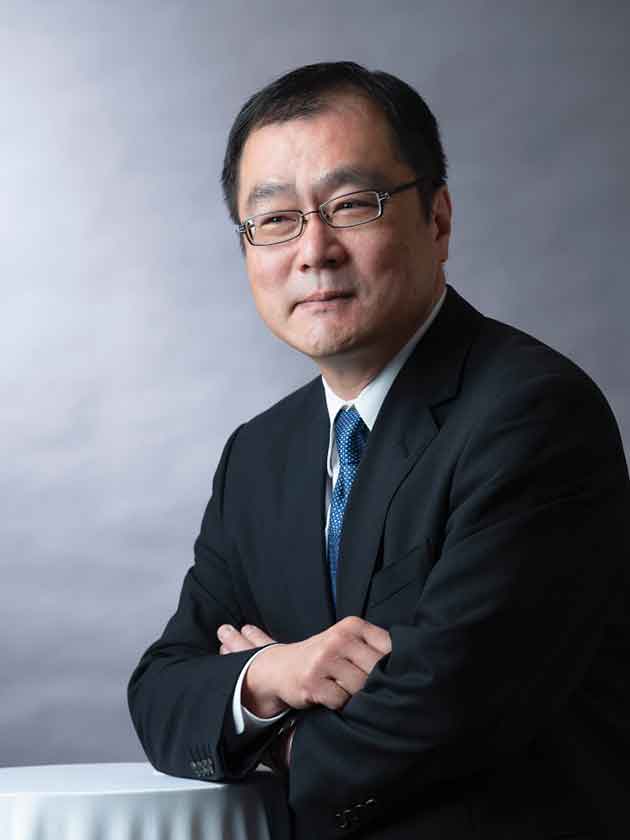Greetings

Dream for researchers!
Chairman of the board directors
Japan Society of Immunology Allergology and Infection in Otorhinolaryngology (JIAIO)
Mitsuhiro Okano, MD, Ph.D.
I am Mitsuhiro Okano, and I have been serving as the 3rd Chairman of the Japan Society of Immunology Allergology and Infection in Otorhinolaryngology since April 2025. This society was established in July 2020 through the merger of the Japan Society of Immunology and Allergology in Otolaryngology (JIAO) and the Japan Society of Infection and Aerosol in Otorhinolaryngology (JSIAO). Although it is a young society entering its sixth year, one of its origins is the Japanese Society of Infectious Diseases in Otorhinolaryngology, established in 1971, which has a history of over 50 years. The first Chairman, Yasuaki Harabuchi, undertook numerous initiatives with the goal of "creating new trends with an eye on progress and development 10 years ahead." The second Chairman, Tomokazu Yoshizaki, developed the society with the slogan "Always a sense of wonder," indicating the direction of the society to academically solve Clinical & Research Questions arising from intellectual curiosity. Since its inception, our society has steadily progressed through "hop" and "step," and this term, we will strive to "jump!"
Our society targets immunology, allergy, infectious diseases, and aerosols (including local therapy with drug delivery systems) within the field of otorhinolaryngology and head and neck surgery. It is characterized by the gathering of people for cross-sectional and comprehensive discussions, and the emphasis on basic research as well as clinical research. For example, based on type 2 immune reaction, we can discuss ear diseases (e.g. eosinophilic otitis media), nasal diseases (e.g. eosinophilic rhinosinusitis, allergic rhinitis), neck diseases (e.g. IgG4-related diseases), and tumors from a cross-sectional and multifaceted perspective, and we can deepen our understanding of the pathophysiology of each disease.
We actively open our doors to young researchers and are energetically working on nurturing talent for future research. The Committee for the Development of Basic Researchers has been established, and under the wise decision of the previous Chairman Yoshizaki, the annual membership fee for young members under 35 has been reduced to 7,000 yen. The Encouragement Award, which has been a gateway for young researchers in JIAIO, continues to develop. This award involves a session for Encouragement Award applications at the academic conference, with ample discussion time and selection by the board members, making it a hot competition between young presenters and the board members. We hope that you will test your research results at this society. Other awards include the Special Award for leaders who have produced outstanding achievements globally in this field, the Society Award for current top performers, and the Excellent Paper Award for authors of outstanding papers published in the society's journal.
As a social contribution, we have established various committees to disseminate information. The permanent committees include the Medical Aerosol Research Promotion Committee, the Joint Committee on Antimicrobial Susceptibility Surveillance of Three Societies, and the ICD Training Committee. The ad hoc committees include the Allergic Rhinitis Treatment Guidelines Committee, the Pediatric Acute Otitis Media Treatment Guidelines Committee, the Acute Tonsillitis and Pharyngitis Guidelines Committee, the Upper Respiratory Tract Infection Control and Appropriate Use of Antimicrobials Committee, the Oral Allergy Syndrome Treatment Guidelines Committee, and the Pediatric Allergic Rhinitis Treatment Guidelines Committee. We publish guidelines, manuals, and directives, and work on revisions and English translations to further promote social implementation.
With the increase in allergies and cancers, and the emergence of new infectious diseases such as COVID-19, the immunology, allergy, and infectious diseases surrounding otorhinolaryngology and head and neck surgery are changing. Our society strives to catch up with the latest trends by collaborating with cutting-edge basic medicine worldwide. Although it is a busy time for clinical practice, making it difficult to maintain a research mindset, our society will do its utmost to provide a place where the joy of discovering new knowledge and the fun of research can be shared, offering a "Dream for researchers!"
